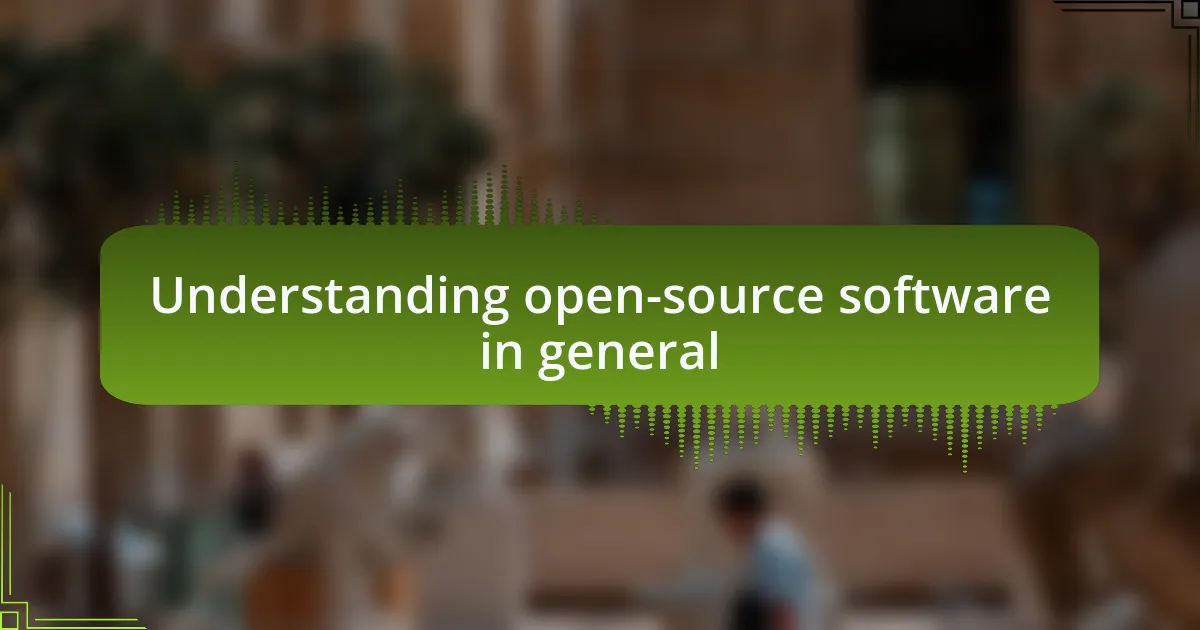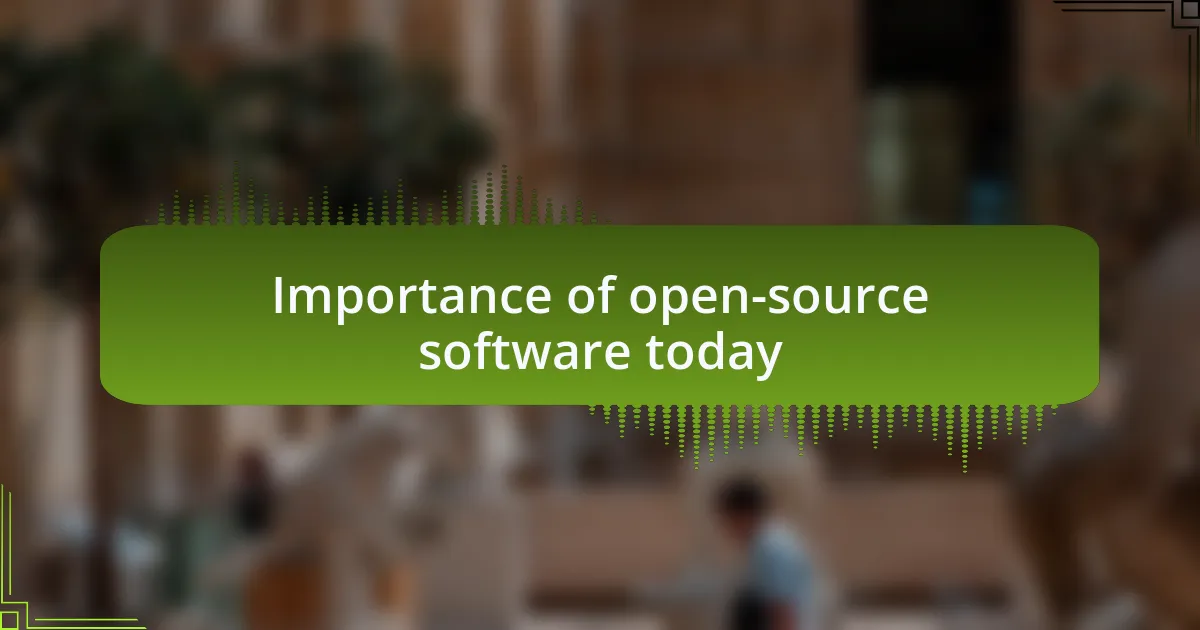Key takeaways:
- Open-source software allows access, modification, and distribution of source code, promoting user empowerment and community collaboration.
- It offers flexibility and customization that proprietary software often lacks, helping users tailor solutions to their specific needs.
- Open-source democratizes technology access, allowing anyone, regardless of budget, to utilize powerful tools and resources.
- The model encourages continuous improvement and innovation, with community contributions driving development and user involvement.

Understanding open-source software in general
Open-source software, at its core, is software that allows anyone to access, modify, and distribute its source code. I remember the first time I dived into an open-source project; it felt like unlocking a treasure chest. Suddenly, I had the power to not just use the software, but to contribute and tweak it to fit my own needs.
One of the most compelling aspects of open-source software is the community it fosters. This collaborative environment encourages innovation, as people from different backgrounds come together to solve problems. Have you ever wondered how many amazing tools we have today because someone decided to share their work? For me, that realization makes the whole open-source movement incredibly inspiring.
Moreover, open-source software often promotes transparency and trust. Since the code is available for anyone to scrutinize, users can have more confidence in its security and functionality. When I first transitioned to open-source tools for my projects, I appreciated knowing exactly what I was implementing into my workflow. It was a game changer, giving me both peace of mind and greater control over my work.

Importance of open-source software today
The importance of open-source software today cannot be overstated. In a world where technology is rapidly evolving, open-source solutions often provide the agility and flexibility that proprietary software can’t match. I recall a project I worked on that required specific features not available in mainstream software; turning to an open-source alternative allowed me to customize the functionality exactly as I needed it. Can you imagine how much time and resources I saved by not being locked into a single vendor’s ecosystem?
Moreover, open-source software democratizes access to technology. This means anyone, regardless of budget, can utilize advanced tools and resources. I was amazed to discover that some of the most powerful editing tools I now use in my audiovisual projects were once just a few lines of code, contributed by passionate individuals all over the globe. It’s a humbling reminder that innovation doesn’t always require a corporate backing.
Lastly, the open-source model fosters continuous improvement and rapid innovation. The collective input from diverse contributors brings in fresh perspectives that drive development forward. I often find myself inspired by how quickly bugs are fixed and features requested by the community are implemented. It’s a vibrant ecosystem where the end-user is not just a consumer but an active participant in shaping the future of the software. Isn’t it refreshing to think that we all can have a hand in pointing technology in the right direction?